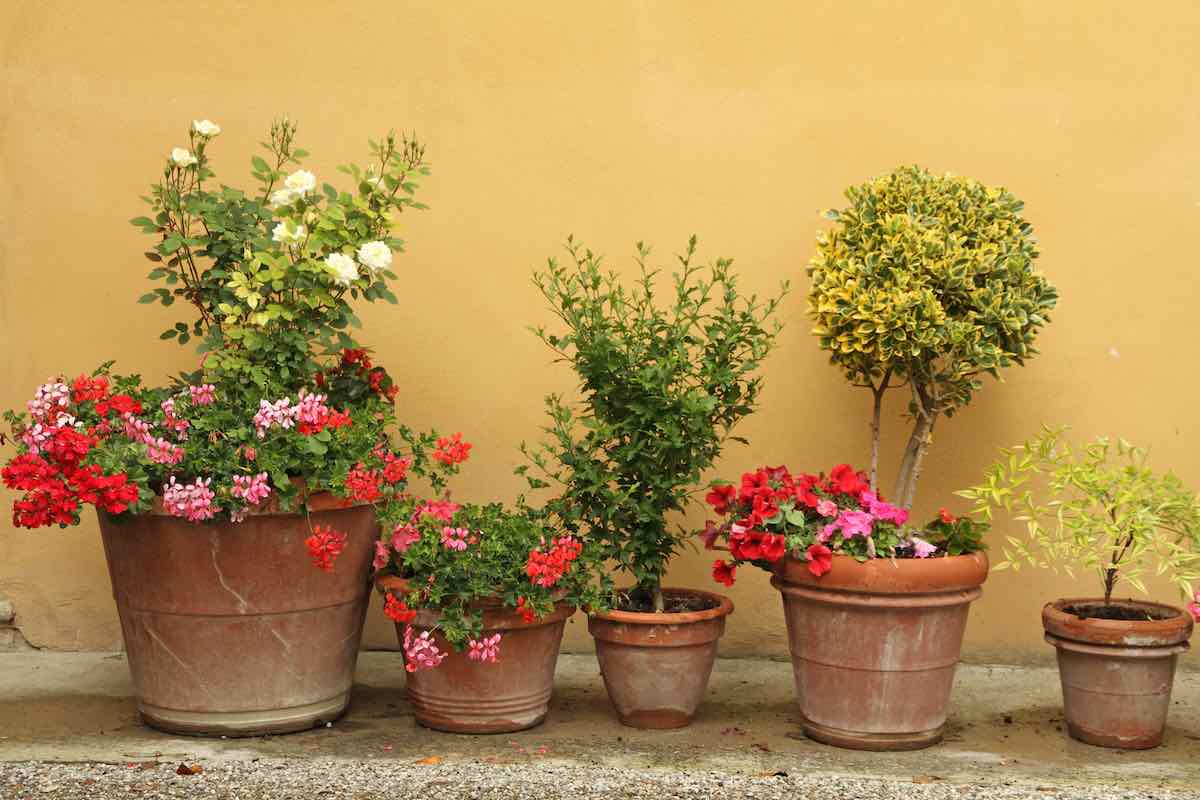on
Astronomy
- Get link
- X
- Other Apps
 |
| Image: - Depositphotos |
From cleaning pots and garden tools to catching fruit flies, these and many others are some of the ways that household vinegar can work wonders in your garden or garden.
One of the most common uses for homemade vinegar is as a 100% natural herbicide. Care must be taken when spraying it around certain plants as it can be harmful to some, but when used on weeds they will disappear in two to three days. Mix 4 liters of white vinegar, a cup of salt and a couple of tablespoons of dish soap and to work.
Clay or terra cotta pots are often preferred by many gardeners because of their durability and ability to provide cool soil even in extreme heat. However, clay pots are notorious for absorbing salt, calcium, or other minerals, which can leave them covered in unsightly white spots. Clean your pots by soaking them in a cup of white vinegar and four cups of water for half an hour to dissolve mineral build-up.

Many people like to keep fresh cut flowers from their garden at home, but the problem is that their lifespan is shortened considerably after cutting the stems. Without having their roots to supply the nutrients the flowers need to survive, even the most manicured flowers wilt after a couple of days. To prolong the life of your homemade bouquets, fill the vase with a liter of water, two tablespoons of sugar and two tablespoons of white vinegar.
When it comes to ants, vinegar can serve to keep them away from our garden or garden. Fill a bottle with a half vinegar, half water solution and sprinkle it around hallways, garden edges, and near anthills to keep them out of the way. You can also use this technique indoors by spraying the solution around door frames, window sills, or anywhere else ants can enter your home.
Some seeds, such as nasturtiums , are often difficult to germinate. To make the process easier, soak the tough seeds overnight in a bowl of water with a few drops of white vinegar, and plant them the next day as usual to speed up the process.
Fruit flies can be a real nightmare for anyone trying to protect their precious fruit trees. To keep fruit flies at bay, you have to catch them. You can make a simple fruit fly trap by filling a jar with apple cider vinegar and a little dish soap. The smell of the vinegar will attract them, and the dish soap will cause them to sink and get trapped in the jar.
A quick and easy way to remove rust from all garden or orchard tools is to soak or spray them with undiluted white vinegar . Let them sit for a few minutes and after cleaning your tools will be as good as new.
As cute as they are, rabbits, raccoons, and pets like cats and dogs can be a nightmare for any garden or vegetable garden. To prevent these animals from destroying your plants, soak a few objects in white vinegar and place them around the perimeter of the garden or orchard to prevent them from approaching it.
Although vinegar can be fatal to many common plants, others, such as rhododendrons, hydrangeas, and gardenias, thrive on acidity, making a little vinegar the best boost. Mix a cup of plain white vinegar with 4 liters of water and use it the next time you water these plants to see amazing results. You can also add a little vinegar to the soil to combat lime or hard water for other less acidic plants.
Everyone loves outdoor furniture or nice picnic tables or benches by the garden, but the downside is that it is very difficult to keep them clean. A quick and effective solution, clean everything with a cloth soaked in white vinegar, which will leave your outdoor furniture gleaming.
To get rid of two of the most well-known pests in the garden, snails and slugs, simply spray them with a mixture of water and vinegar.
Sometimes that overgrown cobblestone look can add character to a space, but when unwanted weeds start to grow through crevices where they shouldn't, it can be a problem. To get rid of weeds, simply sprinkle white vinegar on the affected areas.
Unsightly water lines can spoil even the most spectacular of fresh-cut flower bouquets in the garden. To remove them, simply fill the vase with a mixture of half water and half white vinegar, or use a vinegar-soaked paper towel and wipe clean.
Anyone who has ever harvested berries knows how difficult it can be to clean stained hands. Instead of scrubbing the palms of your hands until they bleed, simply wash them with a little white vinegar to remove those stains quickly and effectively.
To wash vegetables quickly and easily, mix one tablespoon of white vinegar with one liter of water. Although washing with water is the easiest way to do it, adding vinegar is always better.
Do you know of any other uses for vinegar in the garden
Comments
Post a Comment